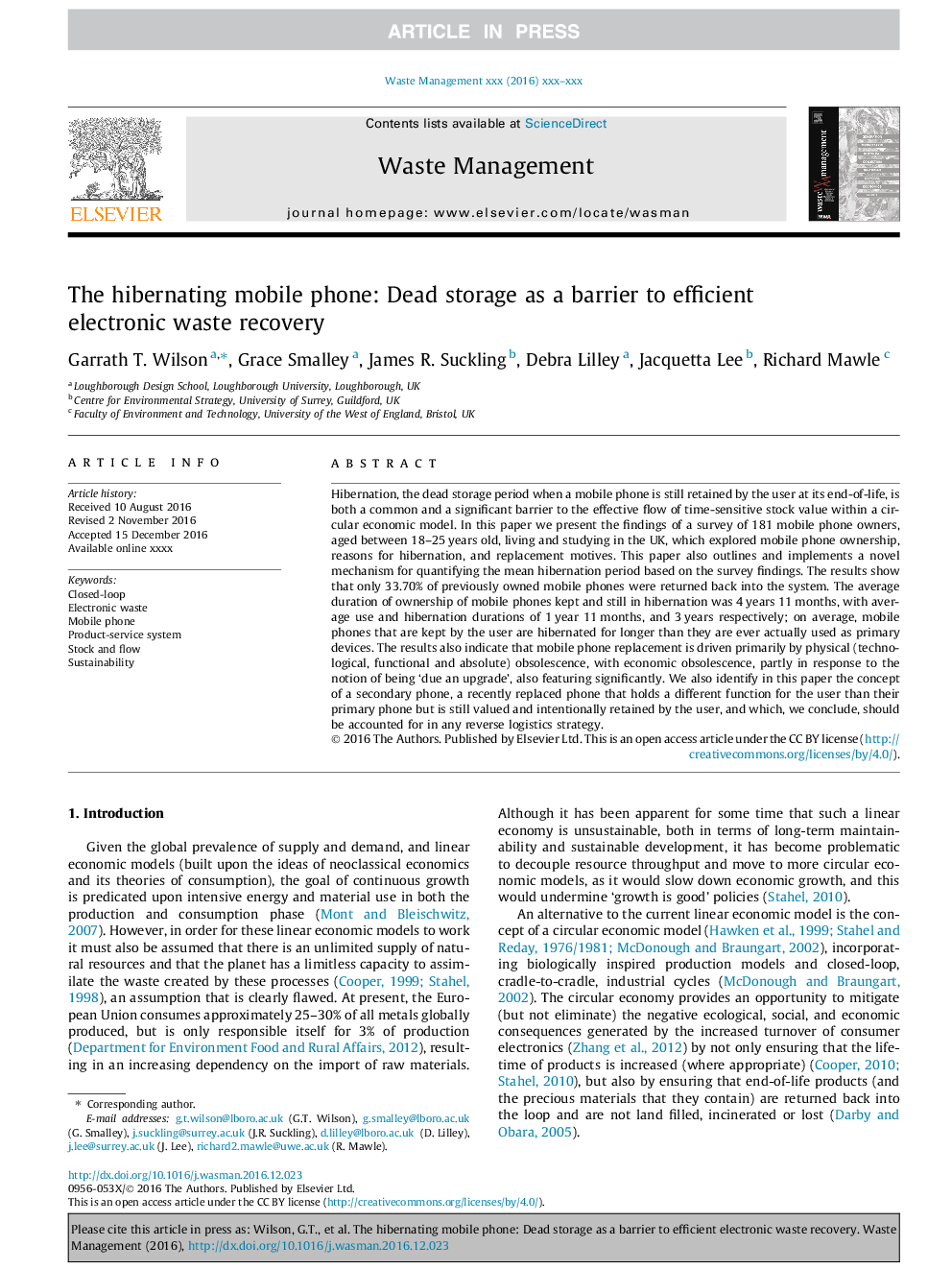ترجمه فارسی عنوان مقاله
تلفن همراه خواب زمستانی: ذخیره سازی مرده به عنوان یک مانع برای بازیابی پسماندهای الکترونیکی کارآمد
عنوان انگلیسی
The hibernating mobile phone: Dead storage as a barrier to efficient electronic waste recovery
| کد مقاله | سال انتشار | تعداد صفحات مقاله انگلیسی |
|---|---|---|
| 146780 | 2017 | 13 صفحه PDF |
منبع

Publisher : Elsevier - Science Direct (الزویر - ساینس دایرکت)
Journal : Waste Management, Volume 60, February 2017, Pages 521-533
ترجمه کلمات کلیدی
حلقه بسته، ضایعات الکترونیکی، تلفن همراه، سیستم خدمات محصول، سهام و جریان، پایداری،
کلمات کلیدی انگلیسی
Closed-loop; Electronic waste; Mobile phone; Product-service system; Stock and flow; Sustainability;

